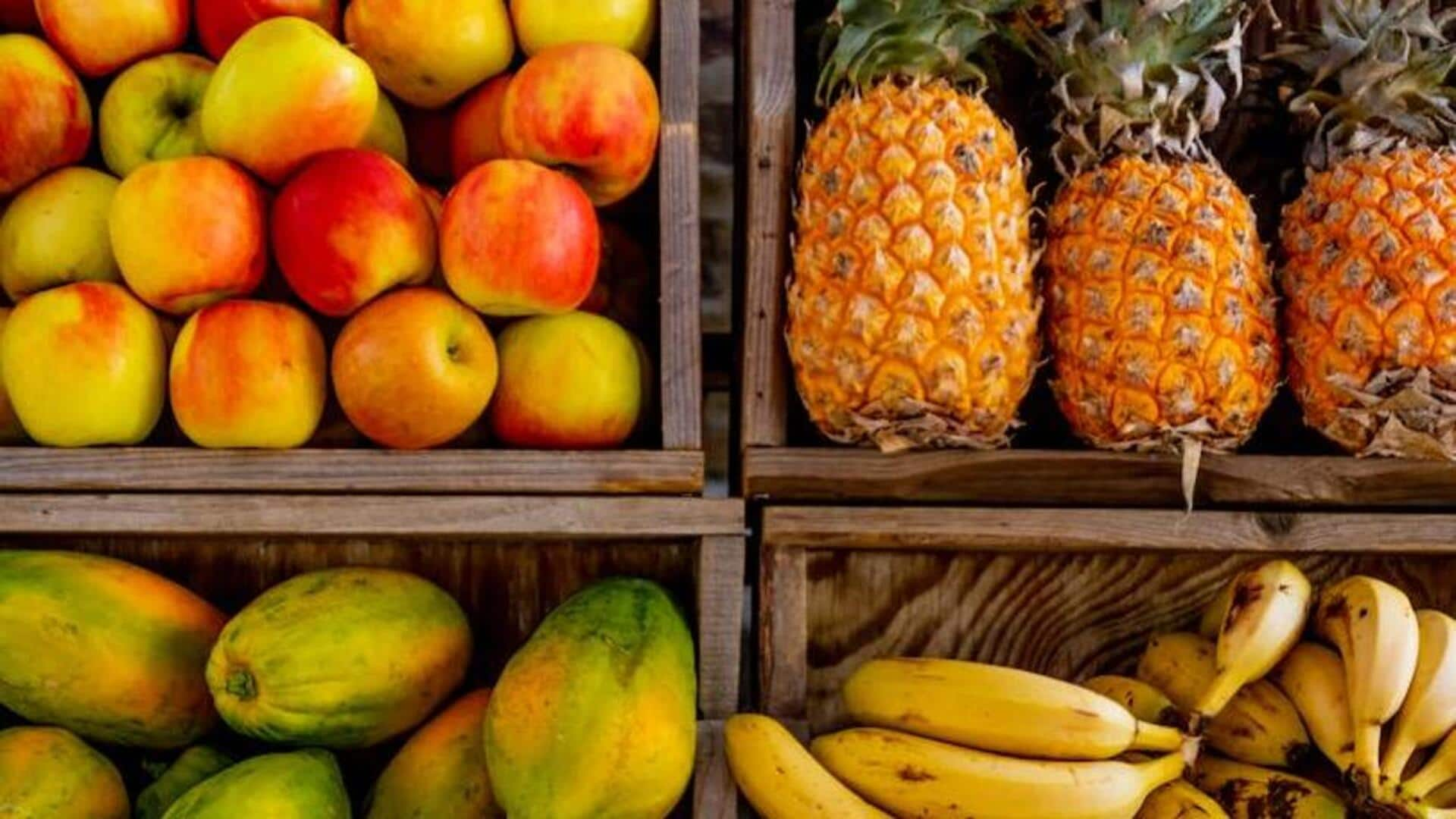
How fruits can enhance your taste buds
What's the story
Fruits are not only packed with vital nutrients but also hold the key to unlocking our taste bud potential. This article delves into the science of how adding a rainbow of fruits to your diet can train your taste buds to appreciate and crave a wider spectrum of flavors. Harnessing this knowledge can transform healthy eating from a chore into a joy, fostering positive and sustainable habits.
Variety
Variety is the spice of life
Eating a wide range of fruits can greatly improve your taste bud sensitivity. Each fruit has distinct compounds that target specific taste receptors on the tongue. For example, citrus fruits like oranges and lemons stimulate sour receptors, while apples and bananas focus on sweet receptors. Over time, exposing your taste buds to various flavors enhances their sensitivity, making you more aware of subtle tastes.
Antioxidants
The antioxidant effect
Fruits are packed with antioxidants, which are super important for keeping your taste buds in top shape. They protect your taste buds from damage caused by nasty things called free radicals. Berries (think strawberries, blueberries, raspberries) are antioxidant powerhouses. Eating these fruits regularly can keep your taste receptors working well and stop that yucky dulling of taste that happens as we get older.
Hydration
Hydration for sensation
Staying hydrated is essential for preserving sensitive taste buds, and fruits with high water content can play a crucial role in this regard. Watermelon, peaches, and oranges are fruits that contain over 80% water. Eating these juicy fruits not only keeps the mouth moist but also improves the dissolving of flavor compounds, making tastes more intense.
Micronutrients
The role of micronutrients
Key micronutrients found in fruits play a significant role in maintaining the health and function of our taste buds. Zinc is particularly important as it contributes to the perception of taste. Avocados are an excellent source of zinc and also provide essential vitamins like vitamin C. These nutrients support the repair of damaged cells, including those on our tongues that detect flavors. This helps preserve our sense of taste.
Training
Natural sweeteners as training tools
Replacing artificial sweeteners or sugar with fruits as natural sweeteners can help retrain your palate to appreciate natural sweetness. Gradually substituting sugar with fruit purees or slices in cereals or desserts introduces the palate to the natural sugars in fruits like mangoes or pineapples. These fruits offer complex flavor profiles, allowing the palate to adjust to sweetness without overwhelming sugar receptors.